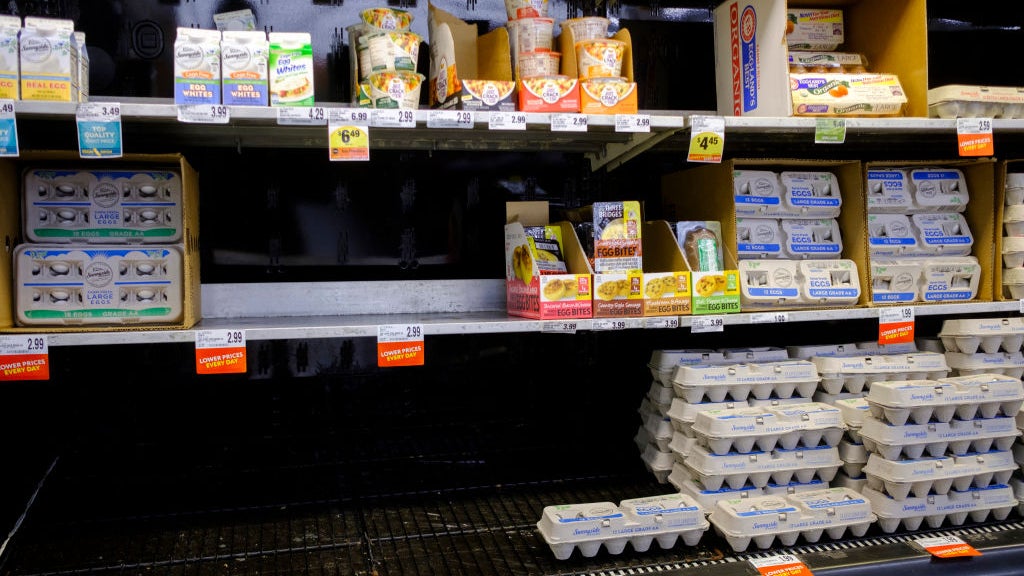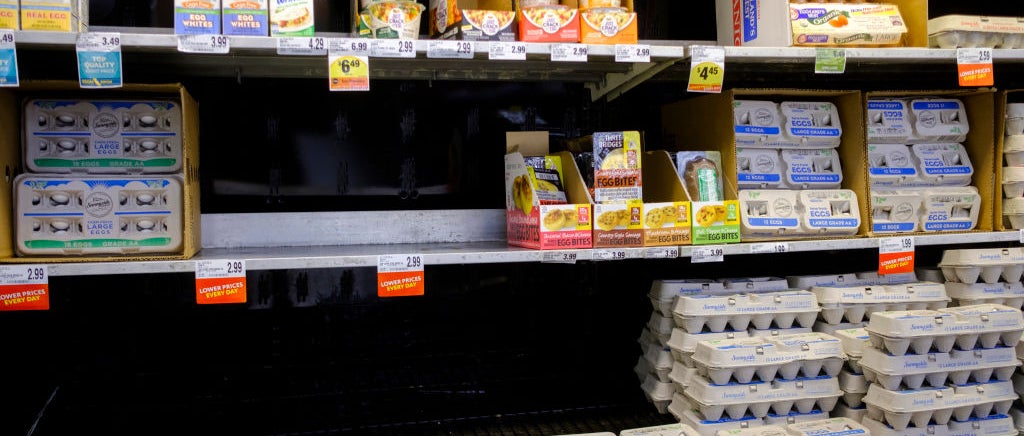Several products in the US are out of stock or subject to spiked prices due to weather conditions, COVID-19 effects, and the aftermath of ongoing Ukrainian conflict.
Because of the war in Ukraine — a major grain producer — COVID-19, and the ongoing drought conditions in the U.S., prices of wheat, corn, eggs and baby formula have drastically increased.
The price of eggs has increased by 56% — last year, the national average of a dozen large white eggs was $1.60 and it is currently $2.50, according to the Department of Agriculture.
Wheat and corn costs have increased heavily, according to CBS. These increases do not just affect the costs of the products themselves, but the price per pound of ground beef, bacon and whole chickens. According to the outlet, compared to last year, these meat prices are higher and are expected to rise further.
According to CBS, a recent recall of baby formula also contributed to the price inflation and product shortage.
The U.S. Food and Drug Administration issued a warning last week warning consumers against using any products made at the Abbott Nutrition's Sturgis, Michigan, facility after the plant was found to be unsanitary, according to the outlet.
According to Datasembly, in 24 U.S. states, 30% of formula was out of stock as of mid-March, while other states were seeing even more significant shortages, including Minnesota, Connecticut, Hawaii, Iowa, Louisiana, Maryland, North and South Dakota, Rhode Island and Texas, all dealing with shortages of 40% or more.
The Infant Nutrition Council of America issued a statement regarding their efforts to increase production alongside a maker of formula product Enfamil.
"We have taken steps to ramp up production and are currently shipping 50% more product, to address issues as fast as possible," a spokesperson for Reckitt, maker of Enfamil, told CBS News in a statement.
A spokesperson for CVS Health said they are working with "national brand baby formula vendors to address this issue and we regret any inconvenience that our customers may be experiencing.”







